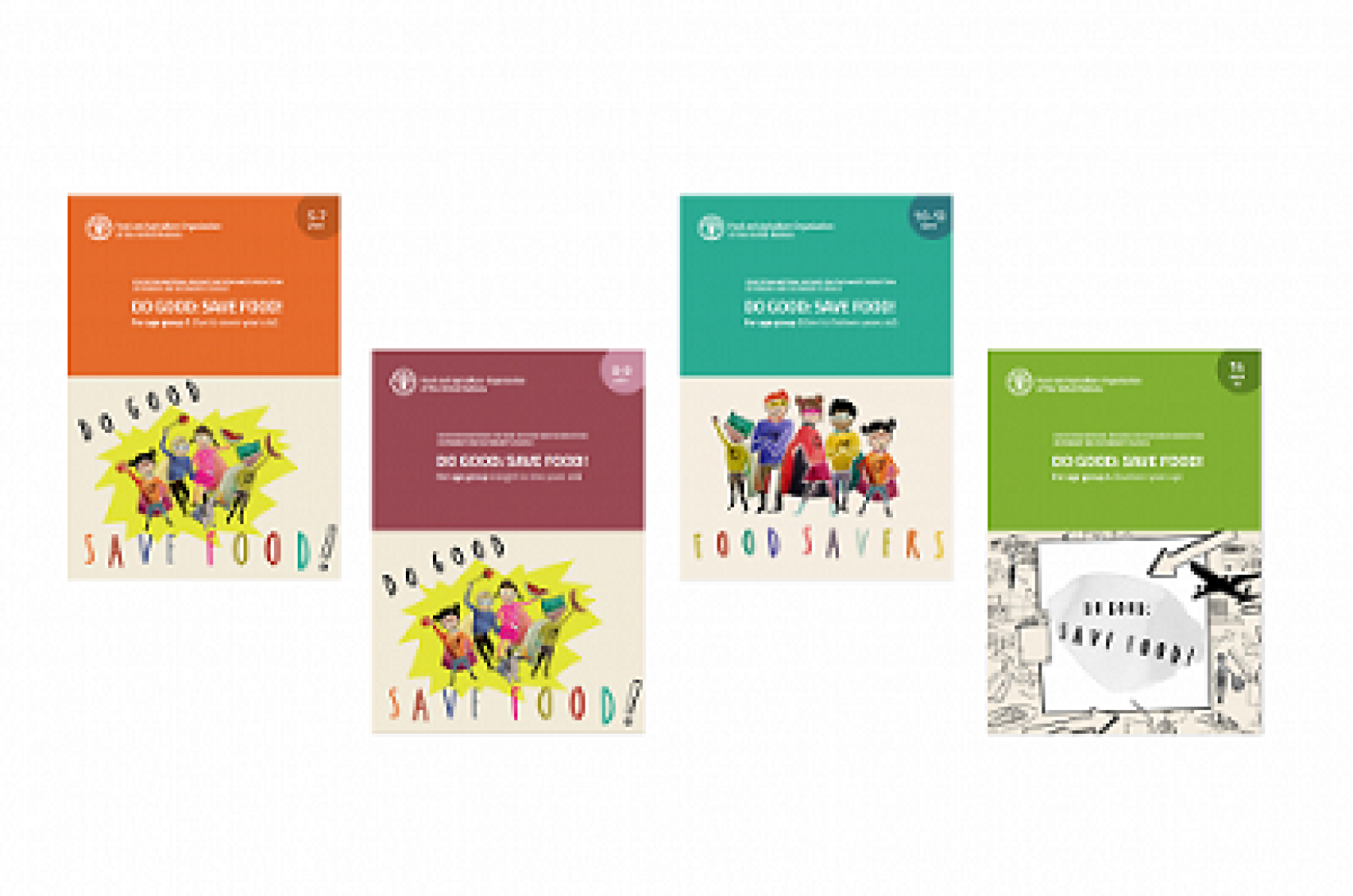FAO and Sabri Ülker Foundation to help children cut food waste at home and reassert the value of food
18 January 2021
- FAO collaborates with Sabri Ülker Foundation on educating children in pre-school and primary schools on reducing food waste at home.

|
Ankara, Turkey – The majority of food waste still occurs at the household level, making it imperative for the consumer households to be informed and change their behavior. To help drive this process, the Food and Agriculture Organization of the United Nations (FAO) in collaboration with the Sabri Ülker Foundation, will distribute “Do Good: Save Food!” series of teaching manuals to over 6 million students, teachers and parents in 20 cities across Turkey via the Foundation’s “Balanced Nutrition Education Project”. Since 2011, the Sabri Ülker Foundation has been working with the Directorate General of Basic Education of the Ministry of National Education on the “Balanced Nutrition Education Project”. The project helps pre-school and primary school children learn about the amount of food they need to eat, understand the significance of physical activity, embrace basic hygiene rules for a healthier life and recognise the benefits of drinking water. Students also learn the rules of balanced nutrition through creative games and entertaining activities. This year, the project adds a new module on food literacy with a focus on food waste and balanced nutrition. The module includes an array of scientific information and educational materials exploring the value of food along its journey from farm to fork, as well as explaining social, economic and environmental impacts related to wasting food and the actions that students can take to prevent food waste. At the end of the project, the children will have a better understanding about healthier, balanced and more sustainable nutrition. “We need to invest in youth now to shape the future of food waste” Emphasizing the valued contributions of the Sabri Ülker Foundation in teaching food literacy habits in children at an early age, FAO Assistant Representative Ayşegül Selışık emphasized that all of us can create a positive and sustainable change in the culture of food consumption by investing in the education of children and young people. Sabri Ülker Foundation’s General Manager Begüm Mütüş, highlighted the significance of their collaboration with FAO: “Promoting food literacy across society is vital in terms of improving and sustaining healthy nutrition and nutrition choice. We aim to reach as many children as we can.” The adventures of CANO, the food saver Recently, the SAVE YOUR FOOD campaign released a series of animated videos, designed to educate young food savers about the environmental impacts of food loss and waste and the new habits children can adopt to prevent and reduce it. In the videos, CANO, the campaign’s mascot, tells children in a simple, yet engaging way, about the resources used in producing food and the journey each food item undertakes before arriving at our tables. CANO also teaches children what they can do to save food, for example, buying only what they need or storing the leftovers appropriately.
Photos: ©Save Your Food website To watch the videos, please visit “The Adventures of Cano” at www.gidanikoru.com About “Do Good: Save Food!” In 2015, FAO and the International Food Waste Coalition (IFWC) joined forces to develop the “Do Good: Save Food!” series of teaching manuals aimed at four different age groups. The guides’ objective is to educate children about the actions they can take now and in the future to reduce food waste, and promote awareness on its social and environmental consequences. The guides also aim to teach good habits that children can develop to reduce their own food waste, and encourage them to share these new habits with their family and friends. The “Do Good: Save Food!” teaching manuals consist of different modules that can be used by teachers in class, or as an extracurricular activities. Each manual in the package contains two core lessons with follow-up activities including worksheets for students and corresponding solution sheets for teachers, games, discussions, projects and much more. LINKS |



